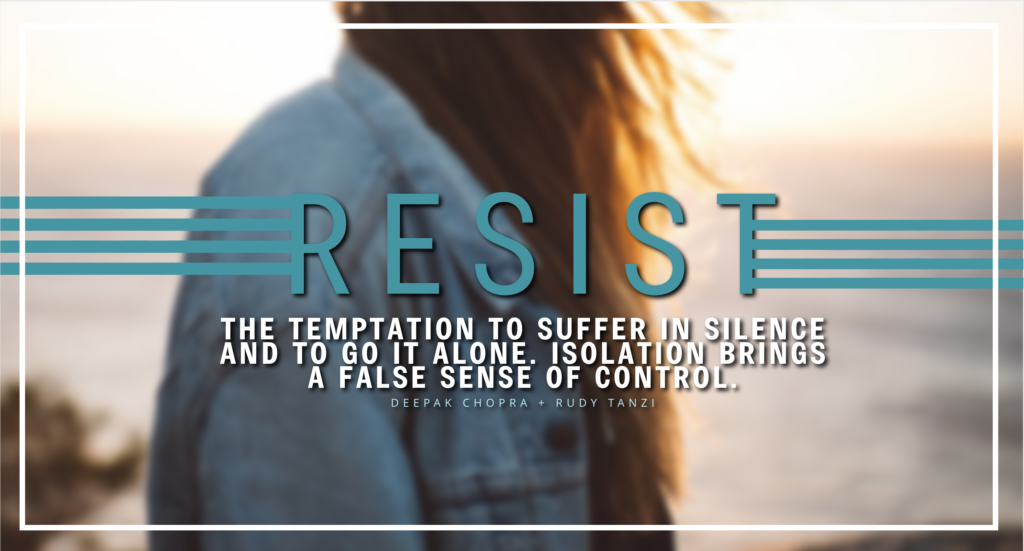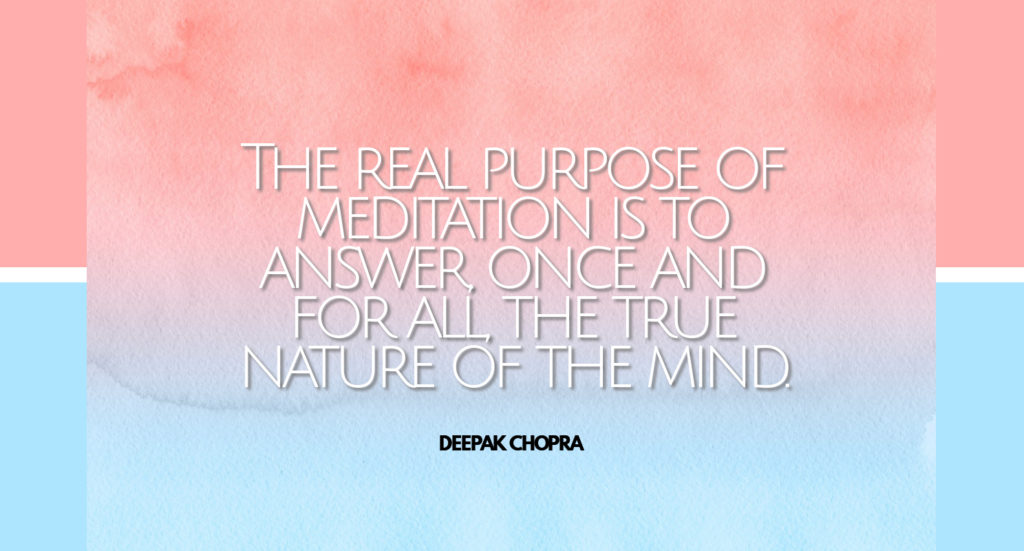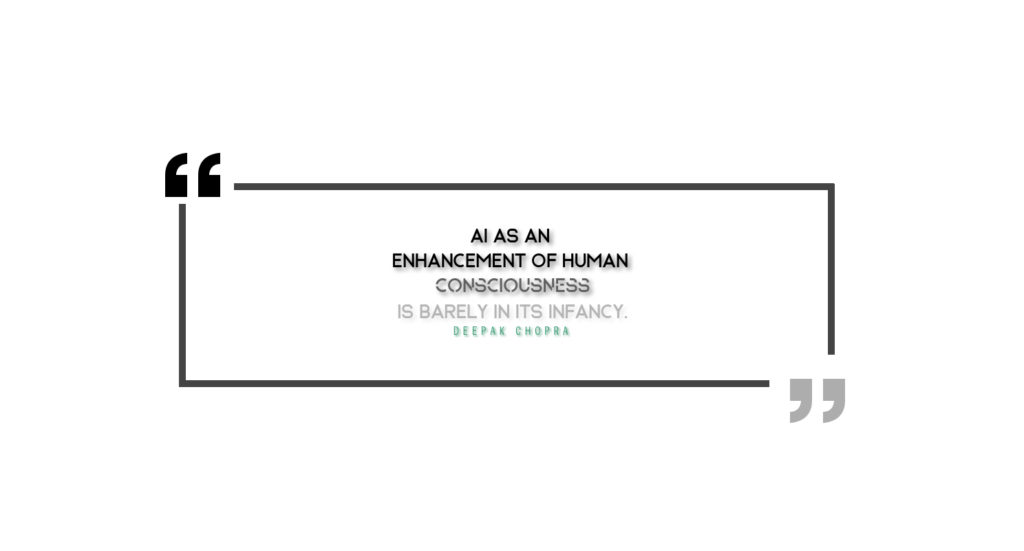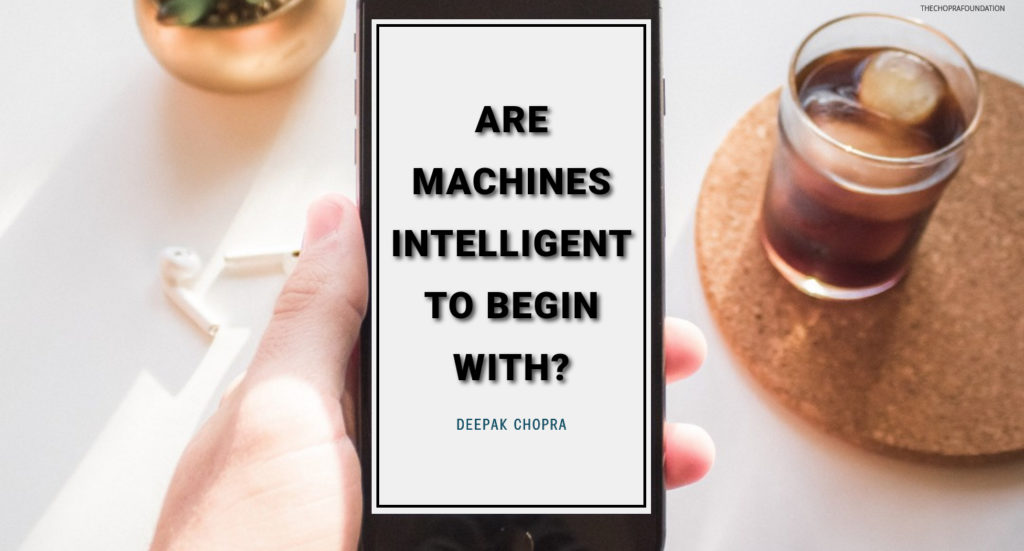By Deepak Chopra, MD and Rudolph E. Tanzi, PhD

When the average person goes to the doctor, shows up at the ER, or enters the hospital, the possibility of controlling what happens next is minimal. We put ourselves in the hands of the medical machine, which in reality rests upon individual people—doctors, nurses, physician’s assistants, and so on. Human behavior involves lapses and mistakes, and these get magnified in medical care, where misreading a patient’s chart or failing to notice a specific symptom can be a matter of life and death. The riskiness of high-tech medicine like gene therapy and toxic cancer treatments is dramatically increased because there is a wider range of mistakes the more complex any treatment is. To be fair, doctors do their utmost to save patients who would have been left to die a generation ago, but they are successful only a percentage of the time.
Risk and mistakes go together, but the general public has limited knowledge of the disturbing facts:
- Medical errors are estimated to cause up to 440,000 deaths per year in U.S. hospitals alone. It is widely believed that this figure could be grossly inaccurate, because countless mistakes go unreported—death reports offer only the immediate cause, and many doctors band together to protect the reputation of their profession.
- The total direct expense of “adverse events,” as medical mistakes are known, is estimated at hundreds of billions of dollars annually.
- Indirect expenses such as lost economic productivity from premature death and unnecessary illness exceeds $1 trillion per year.
Statistics barely touch upon the fear involved when any patient thinks about being at the wrong end of a medical mistake. What the patient is all too aware of is the doctor visit that goes by in the blink of an eye. A 2007 analysis of optimal primary-care visits found that they last 16 minutes on average. From 1 to 5 minutes is spent discussing each topic that’s raised. This figure is at the high end of estimates, given that according to other studies, the actual face-to-face time spent with a doctor or other health-care provider comes down to 7 minutes on average. Doctors place the primary blame on increasing de
mands for them to fill out medical reports and detailed insurance claims. Patients tend to believe that doctors want to cram in as many paying customers as they can, or simply that the patient as a person doesn’t matter very much.
As a result there’s a new movement afoot to provide a personal advocate who stays in the doctor’s office with the patient. The advocate is basically someone who represents the patient’s best interests in any medical situation. The person might be a well-meaning relative who helps an older patient understand what’s going on, or who steps in to do attendant tasks like picking up prescriptions and organizing medical bills. But more and more one sees the need for an advocate who is professionally trained to buffer the mounting risks in a health-care system in which less and less time is spent between doctor and patient.
It would be up to an advocate to find out, and needless to say, this has created hostility from some doctors. Used to ruling their domain with absolute authority, few doctors want an overseer in the room asking questions, inserting their own opinions, and potentially finding fault. At worst, the specter of a malpractice suit looms. The movement for professional advocates, which is quite young, insists that looking out for a patient’s best interests is benign. The medical profession has its doubts.
The upshot, for now at least, is that patients who want an advocate must play the role themselves. At the heart of the problem is passivity. When we surrender to medical care, whether at the doctor’s office, the ER, or the hospital, we shouldn’t surrender everything. Poking and prodding is intrusive. Undergoing various tests can be stressful. The minute we walk in the door, we become largely anonymous—a walking set of symptoms replaces the person. There are doctors and nurses who take these negative effects seriously and who go out of their way to offer a personal touch. They should be saluted for their humane compassion in a system that focuses more on impersonal efficiency.
You may like your doctor and feel that he cares, but this doesn’t rule out being your own advocate. Quite the opposite—the inherent stress in medical treatment is what you want to counter. First comes the stress of worry and anticipation, what is commonly known as white-coat syndrome. We all remember how afraid we became as children thinking about getting a shot from the school nurse or how scary it was sitting in the dentist’s chair even before the drill was turned on. Studies have verified that anticipating a stressful situation can cause as great a stress response as actually undergoing the stress. In one study subjects were divided into two groups, one of which gave a public speech while the other was told that they were going to give a speech but actually didn’t. Both groups became stressed out, but the researchers wanted to measure how well they recovered from the stress
Knowing that you are going to be in a stressful situation, there are a number of ways to feel more in control:
- Be informed about your illness. Don’t relinquish your opportunity to find out exactly what is wrong with you. This doesn’t mean you should challenge your doctor. If you feel the need to inform your doctor about something you saw online, you aren’t being confrontational, and most doctors are now used to well-informed patients.
- If the illness isn’t temporary and minor, contact someone else who is going through the same diagnosis and treatment as you. This may involve a support group, of which many exist online, or simply talking to another patient in the waiting room or hospital.
- If you are facing a protracted illness, become part of a support group, either locally or online.
- Keep a journal of your health challenge and the progress you are making toward being healed.
- Seek emotional support from a friend or confidant who is empathic and who wants to help (in other words, don’t lean upon someone who is merely putting up with you).
- Establish a personal bond with someone who is part of your care—nurses and physician’s assistants are typically more accessible and have more time than doctors. Ideally, this bond should be based on something the two of you share—family children, hobbies, outside interests—not simply your illness.
- Resist the temptation to suffer in silence and to go it alone. Isolation brings a false sense of control. What actually works is to maintain a normal life and social contacts as much as possible.
Following these steps will go a long way to achieving the goal of patient advocacy, which is to serve the patient’s best interests at all times. But there remains a difficult unknown, the possibility of a medical error.
Seeing the doctor involves personal interaction, and it’s important to reduce any possible friction. Here are a few pointers:
Do
- Be involved in your own care.
- Inform the doctor and nurses that you like to be involved.
- Ask for extra information when you need it.
- Ask for a questionable event, like a pill you aren’t sure is the right one, to be checked with the doctor.
- Tell somebody if you have gone out of your comfort zone.
- Remain polite in all of the above.
- Praise the doctor and nurses when it’s called for. A show of gratitude doesn’t go amiss
Don’t
- Don’t act hostile, suspicious, or demanding.
- Don’t challenge the competency of doctors and nurses.
- Don’t nag or whine, no matter how anxious you are. Reserve these feelings for someone in your family, a friend, or a member of a support group.
- Don’t pretend you know as much (or more) than the people who are treating you.
- Don’t, when hospitalized, repeatedly press the call button or run to the nurses’ station. Trust their routine. Realize that the main reason patients call a nurse is more out of anxiety than out of real need.
- Don’t play the part of a victim. Show your caregivers that you are maintaining a normal sense of security, control, and good cheer even under trying circumstances.
Probably the most important finding about medical mistakes is that they are frequently caused by lack of communication.
In our new book The Healing Self we delve into patient advocacy in more detail as well as covering the expanding role of self-healing, which is going to only become more important in the coming decades.
Deepak Chopra MD, FACP, founder of The Chopra Foundation and co-founder of The Chopra Center for Wellbeing, is a world-renowned pioneer in integrative medicine and personal transformation, and is Board Certified in Internal Medicine, Endocrinology and Metabolism. He is a Fellow of the American College of Physicians and a member of the American Association of Clinical Endocrinologists. Chopra is the author of more than 80 books translated into over 43 languages, including numerous New York Times bestsellers. His latest books are Super Genes co-authored with Rudy Tanzi, Ph.D. and Quantum Healing (Revised and Updated): Exploring the Frontiers of Mind/Body Medicine. www.deepakchopra.com
Rudolph E. Tanzi, Ph.D. is the Joseph P. and Rose F. Kennedy Professor of Neurology at Harvard University and Vice Chair of Neurology at Mass. General Hospital. Dr. Tanzi is the co-author with Deepak Chopra of the New York Times bestseller, Super Brain, and an internationally acclaimed expert on Alzheimer disease. He was included in TIME Magazine’s “TIME 100 Most Influential People in the World.”
References:
Brennan TA, Leape LL, Laird NM, et al. Incidence of adverse events and negligence in hospitalized patients. Results of the Harvard Medical Practice Study I. N Engl J Med 1991;324:370–6.
Kohn LT, Corrigan J, Donaldson MS. To err is human: building a safer health system. Washington DC: National Academy Press, 2000.
Department of Health and Human Services. Adverse events in hospitals: national incidence among Medicare beneficiaries. 2010. http://oig.hhs.gov/oei/reports/oei-06-09-00090.pdf.
A New, Evidence-based Estimate of Patient Harms Associated with Hospital Care James, John T. PhD Journal of Patient Safety: September 2013 – Volume 9 – Issue 3 – p 122–128
doi: 10.1097/PTS.0b013e3182948a69
Makary MA, Daniel M. Medical error-the third leading cause of death in the US. BMJ 2016;353:i2139. doi:10.1136/bmj.i2139
Measurement of patient safety: a systematic review of the reliability and validity of adverse event detection with record review. Mirelle Hanskamp-Sebregts, Marieke Zegers, Charles Vincent, Petra J van Gurp, Henrica C W de Vet, Hub WollersheimPublished 22 August, 2016 http://bmjopen.bmj.com/content/6/8/e011078.full
Weismann JS, Schneider EC, Weingart SN, et al. Comparing patient-reported hospital adverse events with medical records reviews: Do patients know something that hospitals do not? Ann Intern Med. 2008; 149: 100–108.
Overview of medical errors and adverse events. Maité Garrouste-Orgeas François Philippart, Cédric Bruel, Adeline Max, Nicolas Lau and B Misset Annals of Intensive Care 20122:2
DOI: 10.1186/2110-5820-2-2 Published 16 February 2012
Valentin A, Capuzzo M, Guidet B, Moreno R, Metnitz B, Bauer P, Metnitz P: Errors in administration of parenteral drugs in intensive care units: multinational prospective study. BMJ 2009, 338: b814. 10.1136/bmj.b814
Ridley SA, Booth SA, Thompson CM: Prescription errors in UK critical care units. Anaesthesia 2004, 59: 1193–1200. 10.1111/j.1365-2044.2004.03969.x
Garrouste-Orgeas M, Timsit JF, Vesin A, Schwebel C, Arnodo P, Lefrant JY, Souweine B, Tabah A, Charpentier J, Gontier O, et al.: Selected medical errors in the intensive care unit: results of the IATROREF study: parts I and II on behalf of the Outcomerea study group. Am J Respir Crit Care Med 2010, 181: 134–142. 10.1164/rccm.200812-1820OC
Garrouste-Orgeas M, Soufir L, Tabah A, Schwebel C, Vesin A, Adrie C, Thuong M, Timsit JF: A multifaceted program for improving quality of care in ICUs (IATROREF STUDY) on behalf of the Outcomerea study group. Critical Care Med, in press.
Overview of medical errors and adverse events. Maité Garrouste-Orgeas, François Philippart, Cédric Bruel, Adeline Max, Nicolas Lau and B Misset Annals of Intensive Care20122:2
DOI: 10.1186/2110-5820-2-2 Published 16 February 2012
Kennerly DA, Kudyakov R, da Graca B, et al. Characterization of adverse events detected in a large health care delivery system using an enhanced Global Trigger Tool over a five-year interval. Health Serv Res 2014;49:1407–25. doi:10.1111/1475-6773.12163 Google Scholar
Rutberg H, Borgstedt Risberg M, Sjodahl R, et al. Characterisations of adverse events detected in a university hospital: a 4-year study using the Global Trigger Tool method. BMJ Open 2014;4:e004879. doi:10.1136/bmjopen-2014-004879
Christiaans-Dingelhoff I, Smits M, Zwaan L, et al. To what extent are adverse events found in patient records reported by patients and healthcare professionals via complaints, claims and incident reports? BMC Health Serv Res 2011;11:49. doi:10.1186/1472-6963-11-49 [CrossRef][Medline]Google Scholar
Classen DC, Resar R, Griffin F, et al. ‘Global Trigger Tool’ shows that adverse events in hospitals may be ten times greater than previously measured. Health Aff (Millwood) 2011;30:581–9. doi:10.1377/hlthaff.2011.0190
Sari AB, Sheldon TA, Cracknell A, et al. Extent, nature and consequences of adverse events: results of a retrospective casenote review in a large NHS hospital. Qual Saf
J Health Care Finance. 2012 Fall;39(1):39-50.
The economics of health care quality and medical errors. Andel C1, Davidow SL, Hollander M, Moreno DA. https://www.ncbi.nlm.nih.gov/pubmed/23155743





